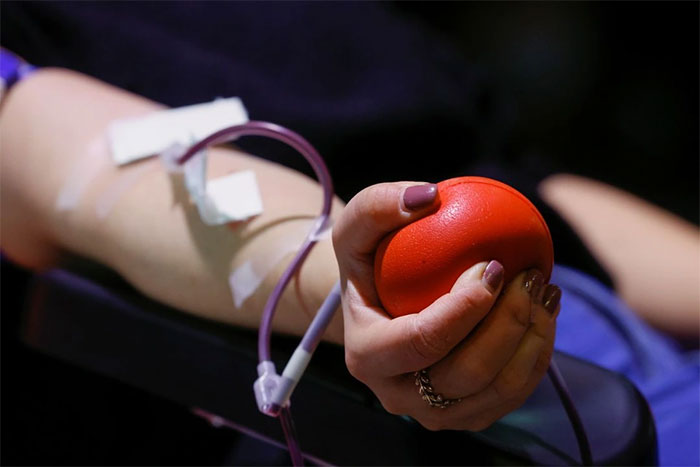British scientists have successfully transfused lab-grown red blood cells into humans, as reported by the Guardian on November 7. This marks the first experiment of its kind in the world.
The red blood cells used are cultured products derived from human stem cells. These stem cells were placed in a nutrient solution for 18-21 days, allowing them to multiply and develop into complete cells. The scientists indicated that they required up to 24 liters of nutrient solution to cultivate just 1-2 teaspoons of red blood cells.

The red blood cells in the experiment were cultured from donor stem cells. (Photo: Reuters).
According to the Guardian, the recipients of the transfused red blood cells were two healthy volunteers. The “artificial” red blood cells were biologically marked, allowing them to be tracked for six months after being transfused into the recipients’ bodies. Neither of the volunteers experienced any adverse reactions.
Experts believe this experiment could provide two immediate benefits. First, it addresses the shortage of blood donors with rare blood types—especially for patients with sickle cell disease or congenital hemolytic anemia, who require frequent blood transfusions.
Second, the “artificial” red blood cells are believed to have a longer lifespan than “natural” red blood cells, potentially reducing the frequency of blood transfusions for these patients. Scientists will conduct experiments to verify this prediction.
“This challenging and exciting experiment is a significant step towards producing blood from stem cells,” said Professor Ashley Toye from the University of Bristol. “This is the first time lab-grown blood (from donor stem cells) has been transfused into a human body. We are excited to observe how the cells will function by the end of the trial.”

















































